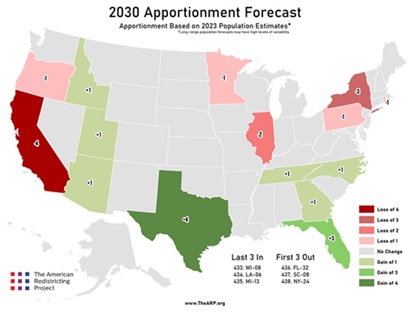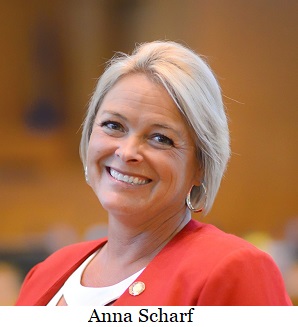
On this day, August 30, 2020, President Trump and Portland Mayor Ted Wheeler (D) traded harsh criticism of each other over violent clashes between anti-racism protesters and conservative counter protesters, a day after the fatal shooting of a member of the right-wing group Patriot Prayer. Patriot Prayer's founder, Joey Gibson, has held pro-Trump rallies repeatedly in Portland and other cities since 2016. Oregon Gov. Kate Brown announced that state police will patrol the nightly protests in Portland with help from officers from neighboring communities.
 Post an Event
Post an Event
| Benton County Republicans’ Private Fundraising Event, “Bent-on Boots and Bling” with Trey Taylor |
| Friday, September 5, 2025 at 5:00 pm |
| Featuring Trey Taylor
Music Private Event
Friday, September 5, 2025 5:00-5:30 pm VIP Reception
5:30-8:00 pm Heavy Appetizers,
Auction, Concert
Red: $750 VIP Reception
Front Row Table Sponsor
White: $500 Table Sponsor
Blue: $50 per person
Limited Seating. Get Yours Now!!!
Support Local
Dress up: Bling, Cowboy, Patriotic Benton County Republican
FUNDRAISER
www.BentonGOP.org
Get your tickets today at:
https://www.bentongop.org/event-details/benton-county-republicans-fundraiser/form
About Trey:
Trey is the youngest African American Man in Country Music History. The Denver Post wrote
"It's impossible to miss his enthusiasm. With a fondness for cowboy boots, gaudy colors and dazzling jewelry, Trey Taylor could stand toe to toe with any of the Pop, Country or even Rap
contemporaries of his generation.“ |
| Trysting Tree Golf Club, 34028 NE Electric Rd., Corvallis |
Does bad information meet the test of misinformation?
The Oregon Secretary of State wants to curtail misinformation about elections. Steve Novick, Oregon Department of Justice environmental lawyer, may be challenging the definition of misinformation. He wants the legislature to take action to redistribute the kicker more equitable. However, his argument uses “equitable” to replace “equal” in the constitution.
Novick published an
article proposing Governor Kotek call a special session to address redistributing the kicker giving the same amount to everyone. He also thinks that by a simple majority vote, the Legislature could make the kicker equitable, since this wouldn’t be a “bill for raising revenue,” it should not trigger the 3/5 vote requirement for tax increases. However, the 2000 ballot measure 86 explanatory statement states, “Ballot Measure 86 would permit the Legislative Assembly, by a two-thirds majority vote of all members elected to each house, to increase the estimates at any time during the two-year state budget period. The effect of an increase in an estimate would be to reduce or eliminate the “kicker” refunds otherwise due taxpayers under Ballot Measure 86.” Technically, distributing an equal amount would result in an increase in the taxable amount for higher taxpayers.
Novick argues that the Constitutional provision on the kicker just says "the total amount of the excess shall be returned to personal income taxpayers," and does not indicate how it should be distributed. When legislators have raised similar ideas, the Legislative Counsel’s office has told them, he presumes, something like “no, you can’t do that, because when the voters put the kicker in the Oregon Constitution they thought they were requiring that kickers be distributed as a percentage of taxes paid.”
However, Article 1, Section 20 of the Oregon Constitution guides the treatment of all people: “Equality of privileges and immunities of citizens. No law shall be passed granting to any citizen or class of citizens privileges, or immunities, which, upon the same terms, shall not equally belong to all citizens.—” The Legislative Counsel is thus correct in saying “no” to the unfair distribution of the kicker.
Novick sees no value to fiduciary responsibility in the state economist’s forecasts saying, “If we only hired starry-eyed optimists as state economists, there’d never be a kicker.” Oregon ranks 27 in fiscal stability and 32 in government credit rating. Taking a riskier approach just to reduce the kicker would have effects on the economy.
A D V E R T I S E M E N T

A D V E R T I S E M E N T
Novick belittles voters assuming they didn’t grasp the significance of their vote on Measure 86 in 2000, further assuming they were voting only on the money that would be handed out. He refers to the
voters pamphlet, claiming it “certainly gave voters no reason to believe they were voting to give huge windfalls to rich people.” However, the arguments in favor state, “Legislators have consistently tried to spend your money…fought hard to return non-budgeted funds back to the people.” “It’s our moral obligation to return the excess. Help curb the growth of government by putting the kicker in the Oregon Constitution.”
Novick further tries to suggest the last statement in the measure, “Ballot Measure 86 would permit the Legislative Assembly to determine the means by which "kicker" refunds are returned to taxpayers”, could be used to mean more than how it is sent back to the taxpayer. However, the text of the measure, Section 14 (5) clearly defines this statement as being how the state processes and returns the kicker.
For what benefit does Novick suggest such a controversial move? It would be the most socialistic move this state has made, which could have an economic impact and stymie growth. Novick repeats that these are his own opinions, but are they mis- dis- or mal-information that may influence voters in an election and subject to the Secretary’s new software? When does bad information become misinformation?
--Dollie Banner| Post Date: 2024-01-04 09:39:09 | Last Update: 2024-01-04 14:34:25 |
The state, Central City Concern, city, county, spearhead effort to purchase building
Governor Tina Kotek, Multnomah County Chair Jessica Vega Pederson, Portland Mayor Ted Wheeler and Central City Concern have announced that through a joint effort, Central City Concern has finalized the contract to purchase a building in Portland’s central city to provide treatment and temporary housing for people experiencing substance use disorders. The contract was finalized in less than two weeks and will add over 70 treatment beds.
“This is an incredible opportunity to fill a direct gap in needed treatment options in the central city,” Governor Kotek said. “The urgency and collaboration that made this purchase possible is precisely the kind of leadership this moment demands. I want to thank my colleagues at the County and City, as well as Central City Concern and CareOregon for rising to the occasion. See a problem, see a viable solution, run toward it.”

This solution may fall far short or relieving the stress caused by
Measure 110. According to the
Family Addiction Specialst "relapse rates for individuals who enter recovery from a drug or alcohol addiction are quite high. Studies reflect that about 40-60% of individuals relapse within 30 days of leaving an inpatient drug and alcohol treatment center, and up to 85% relapse within the first year."
The announcement comes just weeks after Governor Kotek’s Portland Central City Task Force -- of which the Chair, Mayor and CCC CEO Andy Mendenhall served as members -- announced its official recommendations and report, including a charge to expand residential substance use disorder treatment services.
“Central City Concern applauds the leadership and partnership of Governor Kotek, Chair Vega Pederson and Mayor Wheeler for decisively acting on recommendations that came directly from the Portland Central City Task Force,” said Andy Mendenhall MD, CEO of Central City Concern. “This program will provide temporary housing and treatment for people experiencing substance use disorders who will benefit from a more structured level of service. Medicaid data informed us we needed more of these services, and aligned leadership empowered rapid success with this project. This is a real win for our region.”
A D V E R T I S E M E N T

A D V E R T I S E M E N T
Some observers have raised eyebrows at a party that
advocated decriminalization of drugs, and then when that became a problem, created solutions that diverted public money to their friends as what some describe as a less-than-effective solution. All of the leaders pushing the center are Democrats and the Democratic Party of Oregon
supported the passage of Measure 110
Two days after the building was put up for auction, CCC submitted a bid with financial commitments including $6 million from the Oregon Health Authority, $6.25 million from Multnomah County, $2 million from the City of Portland, and $3 million of their own funds. CareOregon agreed to provide temporary bridge-loan funding to support the transaction through closing. The location of the building is confidential per a non-disclosure agreement until the sale is final.

The seller accepted the proposal, and Central City Concern finalized a purchase and sale agreement within 10 days of the building first being put up for auction. The Multnomah County Board of Commissioners is scheduled to take an official vote allocating funds tomorrow. The Portland City Council is also planning a vote this month.
“Our mandate is to make sure resources are available when people urgently need them,” Chair Vega Pederson said. “This facility, which we are fast-tracking to provide high-acuity beds for treatment, dramatically increases our response to this crisis. It is what we need from our partners and providers to serve the immediate needs of people across our continuum of care. Bravo Central City Concern.”
“I’m grateful for Central City Concern’s leadership in launching this project and quickly coordinating funding support with regional partners for a facility that will help expand direly needed treatment resources here in the City of Portland,” Portland Mayor Ted Wheeler said.
A D V E R T I S E M E N T

A D V E R T I S E M E N T
Renovations and hiring will be fast tracked with a goal to open in the fall. The building is expected to add over 70 beds to support a Residential Treatment Program for substance use disorders and behavioral health. With 24-hour staffing, the new program is anticipated to provide 40 residential treatment beds serving individuals for a duration of 1-4 months followed by step-down services on-site with 30-35 transitional housing beds plus outpatient SUD services.
--Staff Reports| Post Date: 2024-01-03 14:28:49 | Last Update: 2024-01-03 17:57:22 |
OHA agrees with audit on Measure 110
Oregon’s Democrat lead legislature wants to avoid a Special Session on Measure 110 by creating a bipartisan Measure 110 review committee. Legislative leaders are putting themselves in charge of the large-scale decriminalization of some drug usage, its oversight and solutions to Oregon's drug and addiction crisis.
The Joint Committee’s aim for the 2024 session is to seek urgent public health and public safety solutions and provide oversight, says Senate President Rob Wagner (D-Lake Oswego). But the bipartisan committee is in name only according to Vikki Breese-Iverson (R-Prineville). "On the issue of Measure 110, the Legislature made a special committee controlled by them via a majority of members on the committee (it is not bipartisan when they have a 3-vote majority on a committee). This committee will have hearings to basically hear from special interest groups bent on keeping drugs legal in Oregon so nonprofits can reap millions in solving a problem in which only 20% of drug users even want."
Oregon voter approval of Ballot Measure 110 led to a first-in-the-nation law coupling decriminalization of drug possession with new services to expand drug treatment availability. Controversial from the start, Measure 110 attracted more scrutiny amid a delay in funding services and decriminalization took effect contributing to the fentanyl trafficking explosion. Critics are planning to seek reforms in 2024 by legislation or possible ballot measure.
ORS 430.392, required the Secretary of State to audit the use of funds from Drug Treatment and Recovery Services Fund by grantees in new Behavioral Health Resource Networks (BHRNs). The Audits Division released an audit report titled
Funding and Delivery of Measure 110 Substance Use Disorder Services Shows Progress, but Significant Risks Remain.
From the program’s inception through June 2023, the Oregon Health Authority (OHA) reports collecting $284 million in Measure 110 revenues, including $275 million in cannabis tax revenues. The agency expended $265 million of Measure 110 revenues in that period, leaving an estimated carryover balance of $19 million at the end of the 2021-23 biennium. The audit reports Oregon has handed out an estimated $261 million in grants for drug treatment and recovery services under Measure 110 — a fraction of the amount brought in. The agency expects to award another $150 million to BHRN providers through June 2025.
Perhaps the most important ongoing detail for OHA to monitor is administrative costs reported by BHRN providers, which varies from an average of 7% in administrative costs through the first year of the grant period, ranging to more than 20%. OHA administrative costs through June 2023 totaled $15.3 million, or 5.4% of Measure 110 revenues. They paid for OHA staff to manage the program, contractors used for the program, data reporting, and funding for the OAC. In the 2021-23 biennium OHA used $6.1 million of General Fund dollars outside Measure 110 revenues to cover the portion of administrative costs beyond a 4% statutory cap on administrative spending from drug treatment fund revenues. In the 2023 legislative session, the Legislature added more responsibilities for OHA and eliminated this cap.
The Oregon Health Authority issued a written response in agreement with the audit findings. (Located at the end of the audit report.) The audit made six recommendations to OHA and the Oversight and Accountability Council (OAC) to improve the program.
- Develop a strategic plan with specific M110 outcome metrics and timelines and
present it in the 2024 legislative session. Consider working with outside researchers
for outcome evaluation if needed.
- Work with providers to better track and report:
a. Specifics on staffing, service expansion, and capital projects;
b. Youth services and virtual services; and
c. The availability of culturally and linguistically specific services.
- Work with providers to improve the consistency and reliability of service expenditures
and client data.
- To improve the application and review process moving forward: Work with
communities and providers to identify the most critical service gaps by county and
barriers to increasing services.
- To improve the application and review process moving forward: Make the application
clear and direct and improve review process transparency and consistency.
- To improve the application and review process moving forward: Require providers to
clearly detail what they plan to do with M110 funds and their experience, capability, and plans for providing services to clients from linguistically diverse or culturally specific backgrounds.
A D V E R T I S E M E N T

A D V E R T I S E M E N T
Since 2021, Oregon continues to rank high nationally in rates of substance use disorders and low in access to treatment. Fentanyl use has exploded increasing the urgency to expand effective treatment services. The number of fentanyl pills seized in Oregon and Idaho’s high-intensity drug trafficking areas rose from 690 in 2018 to 3,020,802 in 2022. Can legislated OAC oversight really solve the out-of-control trafficking, addictions and excessive costs to taxpayers?
--Donna Bleiler| Post Date: 2023-12-27 11:33:18 | Last Update: 2023-12-27 02:06:36 |
U.S. Census trending towards a loss of one House seat
Oregon’s new Congressional District may be short lived. The apportionment based on 2023 population estimates forecast Oregon will lose one representative in the next reapportionment scheduled for 2030.
This assessment of the redistricting of congressional seats, which involves presidential electoral votes, comes straight from an extrapolation of current population trends as measured by the new 2023 population count by the U.S. Census Bureau. If these trends continue, and that’s a big ‘if’, the next map would shift 13 seats to more red states according to an analysis by the
Census Bureau.
Congress has a cap of 435 House seats so as population moves seats are adjusted. Several blue states are losing their population. California is projected to lose four seats, New York will lose three, and Illinois two seats. Oregon, Minnesota, Pennsylvania and Rhode Island are on schedule to lose one seat. On the reverse, Texas will pick up the most adding four, Florida three, and one each in Idaho, Arizona, Utah, Tennessee, Georgia and North Carolina.
The
U.S. Census Bureau released population estimates this week. "Population trends are returning to pre-pandemic norms as the number of annual deaths decreased last year and migration reverted to patterns not seen since before 2020.”
A D V E R T I S E M E N T

A D V E R T I S E M E N T
The
national gain is reported as 1.6 million people in 2023, a 0.5% gain, up from 0.4% in 2022 and 0.2% in 2021. More states experienced population growth in 2023 than in any year since the start of the pandemic.
The West Coast states of Alaska and New Mexico gained population after losing population in 2022. However, California, Oregon and Hawaii continued to lose population in 2023 but at a more modest pace than the prior year. Oregon’s population continued to drop by 6,021 in 2023, somewhat less than the 16,000 lost in 2022.
What is Oregon doing to reverse this trend? Governor Kotek has welcomed AI manufacturing that may replace workers lost, but may also set up a paradigm shift for competition with population growth.
--Donna Bleiler| Post Date: 2023-12-23 08:39:25 | Last Update: 2023-12-22 01:38:44 |
New Oregon Transparency Website provides details on state spending and performance
Enterprise Information Services has launched a new Oregon Transparency Website, which went live on Dec. 13, 2023. The transparency website features information and resources on public meetings , public records , state salaries , revenue , budgets and more.
In 2009, through the approval of
HB 2500, Oregon state government enacted the Oregon Transparency Program and website legislation. The program created an open resource where website visitors can access details on how the state is spending tax dollars and information on programs and services that provide investments back into Oregon’s economy. The only remaining chief sponsor of the bill is Senator Kim Thatcher.
The
Transparency Oregon Advisory Commission was created to advise on website content and information. The Commission consists of state senators, state representatives, Legislative Fiscal Office staff, as well as state agency and public members.
Enterprise Information Services’ Data Governance and Transparency Program focused efforts in 2023 to redesign the website to include updated content, more user-friendly navigation, and a new design to promote greater interactivity and transparency for the public. The process included insight from current users, agencies, committees and site analytics to improve the user's experience.
Chief Data Officer Kathryn Darnall Helms, the director of Data Governance and Transparency, says the new site is “a significant improvement in how we get valuable information and data out to our constituents, and is but one part of how we are pushing for greater transparency and more open data within Oregon state government.”
A release from the Department of Administrative Services provided several links.
--Staff Reports| Post Date: 2023-12-22 19:27:05 | Last Update: 2023-12-21 20:27:38 |
“Sweeping policy change should be the result of legislation, not executive decree”
The Oregon Court of Appeals has declared that Oregon's Climate Protection Program is invalid. Judge Jacqueline Kamins, in an
opinion issued by the Oregon Court of Appeals, said,
The Legislative Assembly has recognized that global warming “poses a serious threat to the economic wellbeing, public health, natural resources and environment of Oregon.” ORS 468A.200(3). Greenhouse gases (GHG) are gasses which “contribute[ ] to anthropogenic global warming.” ORS 468A.210(2).
In 2020, recognizing the danger posed to Oregonians by GHG, then Governor Brown issued Executive Order 20-04, in which she directed EQC and the Department of Environmental Quality (DEQ) to develop rules establishing a sector specific GHG “cap and reduce program.” Specifically, Governor Brown directed EQC and DEQ to “take actions necessary” to “cap and reduce” GHG emissions from large stationary sources, from transportation fuels, and from all other liquid and gaseous fuels.

At issue was a technical point about the DEQ not including "a written explanation of the commission’s scientific, economic, technological, administrative or other reasons for exceeding applicable federal requirements and any alternatives the commission considered and the reasons that the alternatives were not pursued.”
According to the Appeals Court, "...we agree that the Environmental Quality Commission (EQC), in adopting the CPP rules, did not comply with the heightened disclosure requirements applicable to it when it adopts rules that apply to entities required to obtain Title V permits
under the federal Clean Air Act (Title V sources). ORS 468A.327(1).
Because EQC, when adopting the CPP rules, did not comply -- or even substantially comply --with the heightened disclosure requirements applicable to it when adopting rules that apply to Title V sources, we conclude that the CPP rules are invalid.
The remaining question is the appropriate remedy; that is, which rules are we are required to hold invalid in this rule challenge pursuant to ORS 183.400(4)(c). In a footnote, EQC contends that if we agree with petitioners’ argument that it failed to provide the disclosure required under ORS 468A.327(1), the correct remedy would be to invalidate only those rules that regulate large stationary sources. In
response, petitioners who challenge EQC’s compliance with ORS 468A.327(1), contend that at least one Title V source is a “fuel supplier” under the rules creating the cap-and reduce system. In their view, because the rules creating the cap-and-reduce system apply to a Title V source and were adopted without compliance with ORS 468A.327, those rules, too, are invalid.
We agree with petitioners. As noted, the heightened disclosure requirements in ORS 468A.327(1) are applicable when EQC adopts any rule “that applies to any facility required to pay fees under ORS 468A.315,” i.e., any facility with a Title V operating permit. Because the rules creating the cap-and-reduce system do apply to at least one Title V 668 N.W. Natural Gas Co. v. Environ. Quality Comm. source and were adopted without compliance with ORS 468A.315(1), those rules are invalid.
In sum, for the reasons above, we conclude that the CPP rules are invalid.
Republican leadership in both chambers of the Oregon Legislature issued statements.
“Most Oregonians, regardless of party affiliation, believe in the rule of law. I think a state agency rushing to implement a draconian regulatory scheme without following the law is irresponsible and bad governing,” said Senate Republican Leader Tim Knopp (R-Bend). “This week’s ruling highlights the importance of our nation’s system of checks and balances, which limit absolute power of unelected bureaucrats and politicians who abuse their power. I hope the courts continue to hold lawlessness accountable.”
“Sweeping policy change should be the result of legislation, not executive decree. The court recognized that fact and ruled correctly. Oregon will have a brighter future when the governor and ruling party recognize that building consensus within the legislature will yield better – and legal – results than their top-down approach,” said House Republican Leader Jeff Helfrich (R-Hood River).
--Staff Reports| Post Date: 2023-12-22 12:48:48 | Last Update: 2023-12-22 14:10:43 |
Schmidt has been criticized for being soft on drug crime
Multnomah County District Attorney Mike Schmidt has announced that the Multnomah County DA’s Office has received $300,000 in supplemental grant dollars to fund a dedicated bias crimes investigator. Funding was awarded to MCDA by the Bureau of Justice Assistance’s Matthew Shepard and James Byrd, Jr. Hate Crimes Program. MCDA previously received a $400,000 grant to partially fund a bias crimes prosecutor, bringing the total amount awarded to $700,000.
The DA’s bias crimes investigator will work with the bias crimes prosecutor, Deputy DA Charlie Weiss, on increased investigations, community outreach, education, and overall efforts to overcome barriers to reporting and identifying bias crimes. MCDA has filled the position, and the start date was December 18, 2023.
“Addressing bias crimes and helping repair the damage of these crimes to victims and communities is a top priority for me and my office,” said DA Mike Schmidt. “This funding will allow us to increase and improve our investigations, which will ultimately result in more prosecution, accountability for perpetrators, and justice for victims of bias crimes.” Schmidt is currently
running for re-election as Multnomah County District Attorney.
“Hate and discrimination have no place in our communities,” said DA Schmidt. “I am pleased that this grant award will allow us to dedicate a prosecutor to effectively address bias crimes, which have a disproportionate ripple effect on our communities. The grant allows for a more proactive approach to address community concerns and advocate for people who have been victims of bias crimes to come forward so that we can hold perpetrators accountable.” Schmidt has
been criticized by some for being soft on drug crime -- a concern cited by the Portland Central City Task Force in their
recent report.
A D V E R T I S E M E N T

A D V E R T I S E M E N T
“It’s no secret that there’s been a surge in bias crimes and incidents across the country, and Multnomah County is not immune to that,” said Deputy DA Weiss. “It’s important that we meet people where they are, that we work with community partners to address bias issues head on, and that we stand together in saying that hate is not part of who we are as Oregonians.”
To report bias incidents to a confidential advocate, contact the Oregon DOJ Bias Response Hotline at StandAgainstHate.Oregon.gov or 1-844-924-BIAS (2427). Community members can report in any language, and the hotline accepts all Relay calls. Emergencies should be reported to 911.
--Staff Reports| Post Date: 2023-12-21 16:00:26 | |
Weight mile tax unconstitutional disparity increases
Oregon Representative Anna Scharf (R-Amity) and Senator Brian Boquist (R-Dallas) have filed a request for a one-day Special Legislative Session next month to rebalance the weight mile tax. They say Democrats have ignored an unconstitutional disparity in how heavy trucks are being taxed.
Article IX 3a of the Oregon Constitution requires the State Highway Fund to be fair and equitable to light and heavy users alike to ensure that cars and trucks pay their fair share of the usage of the road. Cars pay the gas tax, while diesel trucks pay their portion through the weight mile tax. Both pay registration fees.
The biennial Highway Cost Allocation Study (HCAS) is used to understand the cost responsibility of each class of vehicle. The 2021-2023 report showed that heavy vehicles were overpaying by 16%, while the 2023-25 report shows heavy vehicles are overpaying by 31%. During the 2023 session, the Majority party knew of this imbalance and refused to address it and have no plans to address it in the upcoming 35-day session in 2024. This leaves a Special Session to address this constitutional violation.
Based on the 2023-2025 HCAS, the Department of Transportation has estimated that trucks will overpay by approximately $193 million per year. That is over $500,000 in taxes being collected every day in violation of the State Constitution. While the weight mile tax is paid by trucks, the cost is passed onto Oregonians as increased prices on goods and services they use every day. The real people overpaying are the working class, seniors on fixed incomes, and families.
“Without trucks, families and communities in Oregon would not have access to the products they rely on. Yet, the State is knowingly overtaxing them in violation of the constitution,” Rep. Scharf said about her effort to call a Special Session. “It is more expensive to operate a truck in Oregon than any other state in the nation. We simply cannot force trucking companies and independent truckers to shoulder the burden of Oregon’s transportation taxes and continue to knowingly violate Oregon’s Constitution. A one-day special session can remedy this situation now.”
Under Article IV Section 10a of the Oregon Constitution, as outlined in
ORS 171.015, a member from each chamber may submit a formal request for a Special Session. Each member of the Legislature will be sent a ballot this week, and a majority of both chambers will need to vote in favor of the Special Session for it to take place. They have 14 days to return their ballot. The estimated date that a Special Session could take place would be the week of January 8th, which coincides with preplanned Legislative Days, a week in which lawmakers are already planning to be in Salem to prepare for the February Short 35-day Legislative Session.
A D V E R T I S E M E N T

A D V E R T I S E M E N T
Can an imbalance be resolved in such a short period of time? If you squeeze the balloon for large trucks cutting costs on the transportation budget, where will the bulge be absorbed? Scharf suggested Democrats should find money to make up any resulting budget shortfall for ODOT in other places.
Oregonians pay the eighth highest gas tax in the nation, which contributes to one of the highest prices at the pump. There is already a money problem with the attempt to ban new gas vehicles by 2035. The Oregon Department of Transportation relies on the gas tax and weight mile tax for revenue to maintain roads, bridges and for other projects. Since 2001, Oregon has piloted
OReGO where drivers voluntarily sign up to pay-per-mile driven. Currently the rate is under 2-cents per mile. A bill to make the program mandatory for everyone passed out of committee last session.
If rebalancing highway usage taxes becomes a reality, watch for pay-per-mile legislation to be pushed even though it presents a heavier burden on rural areas, creating another imbalance.
--Donna Bleiler| Post Date: 2023-12-20 11:23:38 | Last Update: 2023-12-19 22:04:58 |
Bridge replacement will require a diverse range of revenue sources
Replacing the aging Interstate Bridge with a modern, earthquake resilient, multimodal structure is a high priority for Oregon and Washington. The
Interstate Bridge Replacement (IBR) Program was awarded $600 million federal grant to move the project forward. As of March 2022, both states have dedicated a combined $90 million for initial Interstate Bridge replacement planning work and have pledged $1 billion from each state. Replacing the bridge is expected to cost around $6 billion, and planners are hoping to see $2.5 billion of that come from federal grants.
A bistate legislative committee, composed of 16 Oregon and Washington lawmakers, provides additional guidance and oversight for the program. A recently passed Move Ahead Washington transportation revenue package allocated $1 billion to fund Washington’s share of the anticipated costs needed to complete the IBR program. Given the funding reality for large transportation projects nationwide, it is assumed that construction of a bridge replacement will require revenue from a diverse range of sources, including federal funds, state funds from both Oregon and Washington, and tolling.
I-5 is the only continuous north-south freeway between Canada and Mexico that makes the Interstate Bridge a critical trade route for regional, national, and international commerce. It is projected that a major earthquake would likely damage, potentially beyond repair, and bring the west coast commerce to a standstill. A new bridge would meet seismic standards and built tall enough so river trade will not disrupt bridge traffic.
The IBR is working toward replacing the I-5 bridge with a plan that would solve congestion for some 143,000 vehicles each day with improved merging lanes, adding light rail and an auxiliary lane for walking and biking to optimize traffic flow.
A D V E R T I S E M E N T

A D V E R T I S E M E N T
Planning priority is on equity to help shape program work and realize economic and transportation benefits. An Equity Advisory Group provides a framework that outlines the program’s approach to equity and the resources it will use to advance equity, including equitable tolling and pricing strategies.
The public is invited to
share their thoughts and sign up to receive updates.
--Donna Bleiler| Post Date: 2023-12-19 13:25:43 | Last Update: 2023-12-19 17:38:12 |
Coalition asks for investigation of NW Natural
A coalition of environmental and social justice groups sent a
letter to Oregon Attorney General Ellen Rosenblum asking her to investigate NW Natural for spreading misinformation about the health and climate risks of gas-burning stoves. They are asking Rosenblum to use her powers under Oregon’s Unlawful Trade Practices Act to investigate and sue NW Natural.
The coalition wants NW Natural to inform customers via mail, email and the company’s website the health risks of gas appliances and the role natural gas and methane play in global climate change.
Representative Mark Gamba (D-Milwaukie) said in a news conference, “Gas companies have a moral and legal obligation to accurately represent the risks their products pose to consumers. Unfortunately, they have continuously and egregiously failed to do so.”
Does this not apply to all public utilities? The coalition uses reports from 1970s stating nitrogen dioxide emitted when natural gas is burned is not healthy. That also applies to an
EPA report of electric power plants as being the largest source of greenhouse gas emissions burning fossil fuels for electricity? Electric power plants are also the largest source of airborne emissions of mercury, a potent neurotoxin which affects the nervous system and brain functions, particularly in children. EPA reports that “Among the 188 hazardous air pollutants (HAPs), or air toxics, that are emitted by power plants, mercury has been a principal HAP of concern.”
A D V E R T I S E M E N T

A D V E R T I S E M E N T
That same report states, “Electric power generation is the second largest emitter of carbon dioxide pollution, contributing to climate change, which is threatening public health and affecting ecosystems at multiple levels, from the biological communities that make up ecosystems to the services they provide to communities, economies, and people.”
EIA Annual Natural Gas Deliveries For Electric Power, 2021 shows that Oregon electric utilities rely on about as much natural gas for power generation as all the natural gas utilities in the state deliver to customers.
--Donna Bleiler| Post Date: 2023-12-18 11:30:27 | Last Update: 2023-12-18 14:11:35 |
Oops
--Staff Reports| Post Date: 2023-12-15 01:19:58 | |
“We affirm our strong support for Israel”
As calls for a ceasefire mount in the conflict in Israel and Gaza, Oregon State Representatives are making it clear that they support Israel and stand against the genocidal terrorist group Hamas.
Representatives Shelly Boshart Davis (R-Albany), Cyrus Javadi (R-Tillamook), and Boomer Wright (R-Florence) issued the following statement:
“After meeting with the Jewish Community Relations Council of the Jewish Federation of Greater Portland, we affirm our strong support for Israel and Israel’s right to defend itself against Hamas, a genocidal terrorist organization that perpetrated a horrific attack resulting in the murder of more than 1,200 Israelis and abduction of over 240.
“While we support more humanitarian aid for non-combatant civilians in Gaza, even a humanitarian pause, we oppose calls for a premature ceasefire, which would leave Hamas’s oppressive regime in power and capable of perpetrating more terrorism against Israel. We also stand firm against antisemitism, which has risen by over 300 percent since the October 7 attack and has made members of our Jewish community feel unsafe. That is unacceptable, and we urge all Oregonians to speak out against this vile form of hate.”
--Staff Reports| Post Date: 2023-12-14 20:04:24 | |
Read More Articles









 This solution may fall far short or relieving the stress caused by Measure 110. According to the Family Addiction Specialst "relapse rates for individuals who enter recovery from a drug or alcohol addiction are quite high. Studies reflect that about 40-60% of individuals relapse within 30 days of leaving an inpatient drug and alcohol treatment center, and up to 85% relapse within the first year."
This solution may fall far short or relieving the stress caused by Measure 110. According to the Family Addiction Specialst "relapse rates for individuals who enter recovery from a drug or alcohol addiction are quite high. Studies reflect that about 40-60% of individuals relapse within 30 days of leaving an inpatient drug and alcohol treatment center, and up to 85% relapse within the first year."

 The seller accepted the proposal, and Central City Concern finalized a purchase and sale agreement within 10 days of the building first being put up for auction. The Multnomah County Board of Commissioners is scheduled to take an official vote allocating funds tomorrow. The Portland City Council is also planning a vote this month.
The seller accepted the proposal, and Central City Concern finalized a purchase and sale agreement within 10 days of the building first being put up for auction. The Multnomah County Board of Commissioners is scheduled to take an official vote allocating funds tomorrow. The Portland City Council is also planning a vote this month.







 At issue was a technical point about the DEQ not including "a written explanation of the commission’s scientific, economic, technological, administrative or other reasons for exceeding applicable federal requirements and any alternatives the commission considered and the reasons that the alternatives were not pursued.”
At issue was a technical point about the DEQ not including "a written explanation of the commission’s scientific, economic, technological, administrative or other reasons for exceeding applicable federal requirements and any alternatives the commission considered and the reasons that the alternatives were not pursued.”








